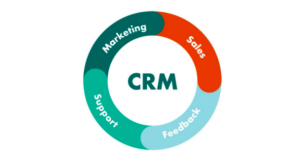By Dina Smith
Every time we turn on the news, there seems to be news of another mass layoff. But when you’re one of those people who just lost their job for circumstances beyond your control, it’s far more than a news story. Your life has been abruptly upended. And even if you saw it coming, it can still be a shock and have a profound emotional impact.
There are various administrative items to attend to on the first day or two after being laid off. But then what? Suddenly your days are wide open, and there can be an overwhelming number of different things you could be doing to fill your time.
When looking at a blank calendar, it’s easy to start frantically applying for jobs. Don’t. Getting into the right headspace is essential, or you risk making a poor impression with recruiters and hiring managers.
In order to put your best foot forward and reground yourself, I highly recommend laid-off workers take a break for as long as possible. It might feel unnatural to slow down after being in a fast-paced job. But taking time to heal and reflect will enable you to move forward with refreshed energy and purpose. Here are five strategies to help you bounce back:
Feel all the feels
There can be a significant emotional impact when you lose a job.
If you’ve been laid off from a job you liked or that you held for a number of years, you might feel angry, sad, irritable, and frustrated. You might even need to grieve. Alternatively, you might feel relieved or even thankful if you’ve been pink-slipped from a lousy job. Regardless, it’s very common to feel burnt out and for your self confidence to have taken a hit.
It can be tempting to ignore all of these feelings but identifying, accepting, and sharing your emotions can help you reduce their intensity and safeguard your health. And if it’s hard to share your feelings with others how you feel, write them down.
Our emotions provide us with essential data, so inquire into them. Ask yourself, “What’s at the root of this feeling?” And, “What might that tell me about myself?” For example, if you’re angry because the process felt unjust, it might suggest you have a strong value around fairness. This self-awareness can help you be more strategic in your job search.
Whatever you feel, stay glued to reality. The truth is that being laid off is not your fault, and losing your job is only temporary. Remind yourself that every ending offers a new beginning.

Reframe your time between jobs
While you may not have chosen the terms of your departure, you can choose how you think about your time in between jobs. It’s natural to feel negative after being let go. Still, we don’t often find ourselves with a sizeable block of time off work. Seeing this period’s freedom and potential silver linings can prepare you to move forward.
Consider: What are the gifts or opportunities in this situation? What actions can you take now that you would not have taken before?
By choosing to see the possible gifts of this time, you reduce the chances of looking back with regret that you didn’t make more of it.
Lean on your relationships
You might not want to share the news that you have been laid off. However, self-consciousness is unnecessary and unhelpful. Social support during challenging times is a key pillar of resilience, enabling us to bounce back more quickly from setbacks.
Start by reaching out to your inner circle of friends and loved ones. Additionally, contact colleagues from your former employer. Colleagues who have been let go can commiserate with you. Remaining employees may feel survivor’s guilt and will likely appreciate you reaching out.
Leveraging your existing relationships can help you emotionally cope and prepare for your next chapter. Relationships can also provide you with essential leads and other help when you start your job search.
Build new healthy habits
Starting new healthy habits—like journaling, meditation, exercise, or therapy—can help you replenish your energy and spirit. First ask yourself what sounds the most appealing.
Put these activities on your calendar to ensure you invest in yourself. For example, you might schedule an hour-long walk each morning followed by 15 minutes of journaling. Also, consider what else fell by the wayside when you were putting in long hours. How about those regular health appointments? Now’s a great time to get caught up.
Recognize that hunting for a job is draining. It can consume your time, well-being, and self-esteem without limits and firm boundaries. Committing to new healthy habits can ensure you make time for yourself as well.
Get inspired
When you’re busy with a full-time job, it can be challenging to find the time to think deeply about what you want for your career and life. Now that you are in an intermission, allow yourself to consider new possibilities.
Try the following exercises to determine what you really want to do:
Getting laid off is hard. Be self-compassionate and patient, and know your next job is out there. Use this natural pause as a time to heal and take stock of your life to help you start your next chapter with renewed energy and purpose.
Dina Smith is the owner of Cognitas, a leadership development firm in the San Francisco Bay Area.
(12)








